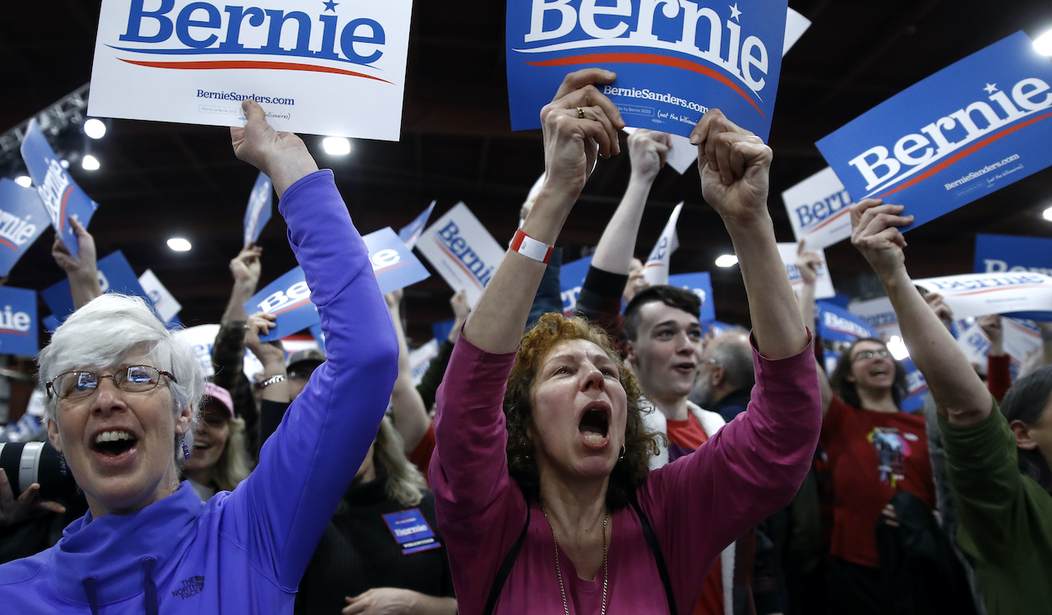Sen. Bernie Sanders held a brief press conference today where he admitted that Michigan will be critical. Former Vice President Joe Biden dominated the south on Super Tuesday. He’s taken the lead in the delegate count. He’s back. In the span of a couple of weeks, Biden has ripped the frontrunner title from Bernie. The former VP’s win in Texas was an upset, and while Sanders did well with Latinos, who he has invested heavily in outreach efforts, Biden’s hold on the suburbs and black voters proved to be too much to overcome.
Sanders noted the differences he has with Joe in the presser while adding that he’s leading a political revolution. It seems that from black voters, a huge part of the Democratic Party coalition, they want nothing to do with it. Sanders' path to the nomination, which a few days ago seemed to be a shoo-in, is now incredibly complicated by Biden’s wins last night. It was a decisive walloping. While Sanders is on track to win California, Biden winning Maine and Minnesota is a huge red flag for the Sanderistas. First, in 2016, Sanders got trounced by black Democrats in the south but scored wins in the north and western parts of the country once this primary contest moved out of the Mason-Dixon line. Biden winning there shows that that beating Trump is more important to voters, especially suburban voters, than revolution. Moreover, it could also be that suburban voters, mostly women, are not too keen on the left-wing agenda Bernie is pushing, especially on health care.
As pollsters and data crunchers noted, a loss or lackluster finish in Michigan for Sanders could make catching up with Biden almost impossible. As Nate Cohn of The New York Times’ Upshot noted, when this contest moves East, he’ll probably lose badly again, as the share of Latinos dips:
With Texas and California off the board, most of the remaining populous states lie in the East, where Mr. Sanders tended to lose, often badly. They also tend to have a below-average Latino share of the vote.
The states where Latino voters do represent roughly an average share of the electorate do not seem likely to be as favorable to Mr. Sanders as California or Texas. Arizona, New Mexico, New York and Florida allow only registered Democrats to vote and therefore exclude a disproportionate number of young Hispanic voters — many of them registered as independents — who are likeliest to back Mr. Sanders. These closed primaries will exclude many young non-Latino voters as well, posing a broader challenge to Mr. Sanders that he did not overcome in 2016 and has not yet had to face in 2020.
Mr. Biden, in contrast, will continue to find many states in the next few weeks where black voters represent an average or above-average share of the population. He needs somewhere around 54 percent of the remaining delegates to claim a majority heading into the Democratic nomination, and his path to accomplishing this might be as simple as repeating the same outcome as Super Tuesday under a more favorable set of states, without the burden of early votes cast long before he emerged as the top rival to Mr. Sanders.
Recommended
It's been noted that turnout hasn't been up very much in Sanders '16 areas--and even down--so here's a provocative hypothesis for you: a small but nonetheless notable proportion of the Sanders '16 rural vote is now just Trump vote, and it's not going back even if he's the nom
— Nate Cohn (@Nate_Cohn) March 4, 2020
Reality check: Sanders will finish substantially behind in delegates & catching up would require another seismic shift in the race. https://t.co/6v2Be7V2Qi
— Dave Wasserman (@Redistrict) March 4, 2020
Keep in mind: a ton of the votes/delegates Sanders won yesterday are attributable to votes cast *before* SC and before Buttigieg/Klobuchar dropped out.
— Dave Wasserman (@Redistrict) March 4, 2020
And he still fell well short of Biden. That’s why this race could functionally be over soon.
If Sanders can’t decisively win Michigan (a state he carried in 2016), it’s tough to see how he has a path to catch up or justifies staying in the race (not to predict he wouldn’t).
— Dave Wasserman (@Redistrict) March 4, 2020
So, yes, Biden holds a slight lead now, but it could quickly accumulate to a point where the left-wing Sanders might have to bow out again. We tend to blow projections nowadays, so looking back—maybe I was a bit hasty being worried about Sanders’ win in Nevada, where he nabbed Latino, young people, and union workers. That is the Obama coalition, but Super Tuesday showed that turnout in areas where Sanders won were either at ’16 levels or lower. There was no uptick. Cohn hypothesized that a sliver of the Sanders voter bloc is now full-blown Trump—and they aren’t coming back.
Sanders “won” Iowa, where he lost to Clinton in 2016 by a razor-thin margin, he won New Hampshire (again), but this time he won Nevada. Nevada is the only exception. He still got trounced in South Carolina and now met the same fate in the South against another old, establishment-based Democrat. So, it’s pretty much a carbon copy of 2016, with the exception that Sanders won Nevada and could exit the race sooner than his previous run for the White House.

























Join the conversation as a VIP Member